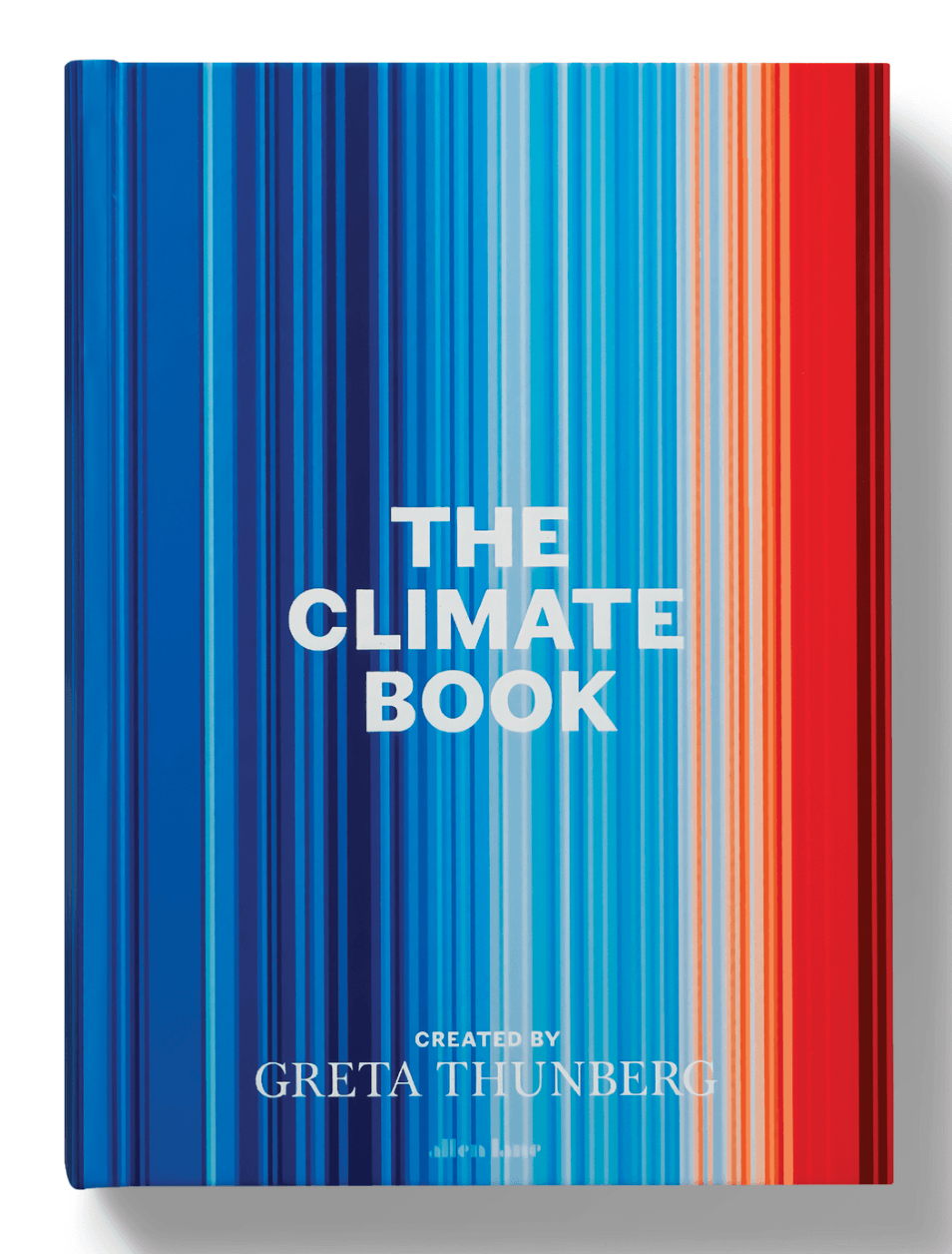November 16, 2022 – The Climate Book, a new book created by environmental activist Greta Thunberg, features essays by more than 100 scientists, activists, and authors from around the world about the climate crisis. The book includes information on how climate works, how the planet is changing, how the changes affect us, what has been done to fight climate change, and what must be done now.
Samuel Myers of Harvard T.H. Chan School of Public Health is among the contributors to Thunberg’s book. He is principal research scientist in the Department of Environmental Health and director of the Planetary Health Alliance, a consortium of more than 300 universities, non-governmental organizations, research institutes, and government entities from around the world focused on addressing the impacts of global environmental change on human health and wellbeing.
 For Thunberg’s book, Myers wrote about how climate change affects food and nutrition. He focused not just on climate but on planetary health as well. “Yes, climate is an extraordinarily urgent problem,” he said. “But so is the fact that we’re driving the sixth mass extinction of life on Earth, that we’ve cut down half the forests on the planet, and that we have major issues around water and arable land scarcity. So when you get to the health part of that conversation, you don’t want to restrict it to the health impacts of a changing climate. You also want to talk about climate change in the context of all of these other kinds of anthropogenic changes.”
For Thunberg’s book, Myers wrote about how climate change affects food and nutrition. He focused not just on climate but on planetary health as well. “Yes, climate is an extraordinarily urgent problem,” he said. “But so is the fact that we’re driving the sixth mass extinction of life on Earth, that we’ve cut down half the forests on the planet, and that we have major issues around water and arable land scarcity. So when you get to the health part of that conversation, you don’t want to restrict it to the health impacts of a changing climate. You also want to talk about climate change in the context of all of these other kinds of anthropogenic changes.”
Myers discussed experiments by his research team that found that higher levels of carbon dioxide (CO2) in the atmosphere were linked with lower levels of important nutrients, including iron, zinc, and protein, in staple crops such as rice, wheat, maize, and soy. Other studies have linked higher levels of CO2 with large reductions in important B vitamins such as folate and thiamine in rice, he noted. A lack of such nutrients can lead to a range of serious health issues, including early death.
Myers emphasized that, in addition to a changing climate, other elements of the Earth crisis are driving large global health impacts. Global loss of biodiversity, including important pollinators for food crops, is impacting the food system and changing people’s exposure to infectious diseases. Incursions into wildlife habitat from agriculture, extractive industry, and wildlife trade cause “spillover” events that allow pathogens to move from wildlife populations to humans. Pollution of air, water, and soil drives an estimated nine million deaths per year. “No dimension of human health is unaffected by anthropogenic environmental disruptions,” Myers said.
Myers praised Thunberg’s effort in creating The Climate Book. “There’s certainly no activist, and there may not be any world leader, who has more moral authority in addressing the urgency of the climate crisis,” he said. “Combining that moral authority with an activist’s impatience and with an exhaustive compilation of academically credible perspectives from thinkers around the world and across pretty much every sector is a pretty powerful combination.”
Two other experts connected to Harvard Chan School contributed to Thunberg’s book: Mauricio Santillana, a professor at Northeastern University and adjunct professor of epidemiology at Harvard Chan School; and infectious diseases epidemiologist Sarah McGough, SM ’16, PhD ’22.
Photo of Samuel Myers: Kent Dayton
Photo of The Climate Book courtesy Penguin Random House
Learn more
Op-ed: Millions at risk as global warming saps key nutrients from crops (Harvard Chan School news)
Two Northeastern professors to be featured in Greta Thunberg’s new book (News@Northeastern)
For stories of climate hope and action, subscribe to The Climate Optimist newsletter.
